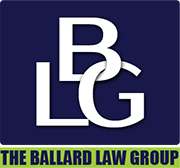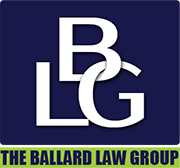Life can take many unexpected turns, especially when it comes to your finances. Though you may have never intended to take on too much debt or fall behind on your bills, certain life events—job loss, illness, or divorce—can lead to this happening. When you are faced with a crippling financial situation, one option is filing for bankruptcy. An Atlanta bankruptcy can give you a fresh financial start as it allows for most debt to be discharged. These debts are called dischargeable debts, and include things like credit card debt, medical debt, past due rent or utility bills, or other personal loans.
Still, even with bankruptcy, some of your debts may not be totally wiped away. These are called non-dischargeable debts. If you are considering bankruptcy to help your financial situation, it is important to speak with an experienced bankruptcy attorney so you know exactly which of your debts will be discharged in your specific financial situation.
Non-Dischargeable Debts
As mentioned above, not all debts are discharged in a Chapter 7 or Chapter 13 bankruptcy. If a debt is non-dischargeable, this means that you are still responsible for the debt. If you choose to file a Chapter 7 bankruptcy, you will be required to repay non-dischargeable debts even after your bankruptcy is over. If you choose to file a Chapter 13 bankruptcy, non-dischargeable debts must be paid back in full during your repayment plan.
So, what type of debts are considered non-dischargeable debts? Non-dischargeable debts include:
- Any back pay on child support, alimony, or other family support debts
- Student Loans—student loans are non-dischargeable unless you can show undue hardship to repay these debts
- Debts related to personal injury or wrongful death due to DUI
- Debts from traffic tickets or other criminal restitution
The above are some of the most common non-dischargeable debts in bankruptcy. However, it is possible for other debts to be non-dischargeable depending on the circumstances or when the debt was incurred. For example, if you fail to list a debt in your bankruptcy a creditor can challenge the act as fraud, in which case the debt would not be discharged. The same is true for luxury goods purchased within two months of filing for bankruptcy—this means you can’t spend excessively or buy unnecessary items in the months leading up to your bankruptcy or those debts will not be discharged.
Get Your Atlanta Bankruptcy Questions Answered
If you think bankruptcy could be an option to better your financial situation, be sure to reach out to the excellent Atlanta bankruptcy attorneys at The Ballard Law Group. Our attorneys are ready to answer your questions and look at your specific circumstances so you can understand which of your debts will be dischargeable and which ones may be non-dischargeable. Bankruptcy can certainly be a step toward a better financial future, so to get more information on how it can help you, call (404) 800-9939 to schedule a free initial consultation at either our Lawrenceville or Atlanta locations.


